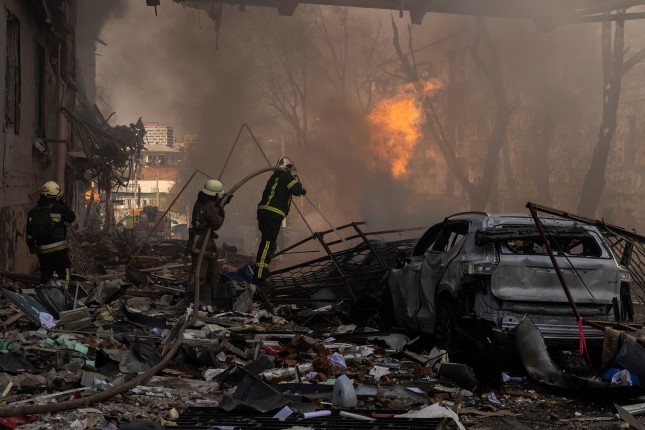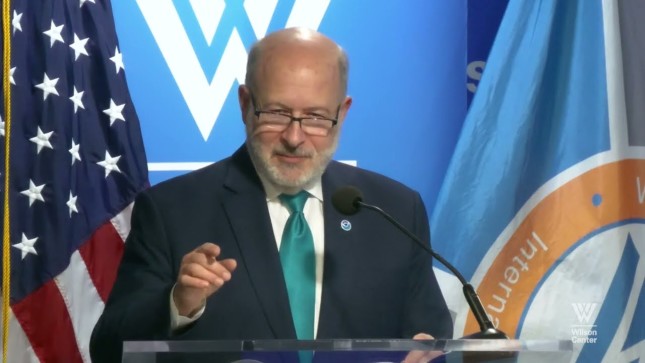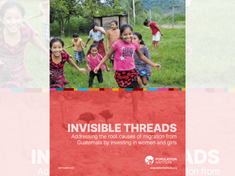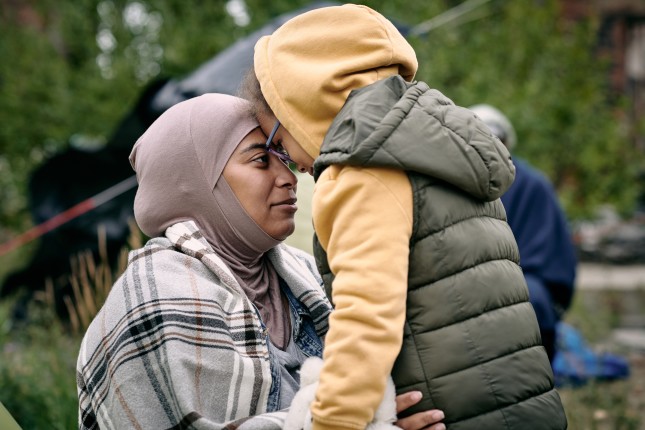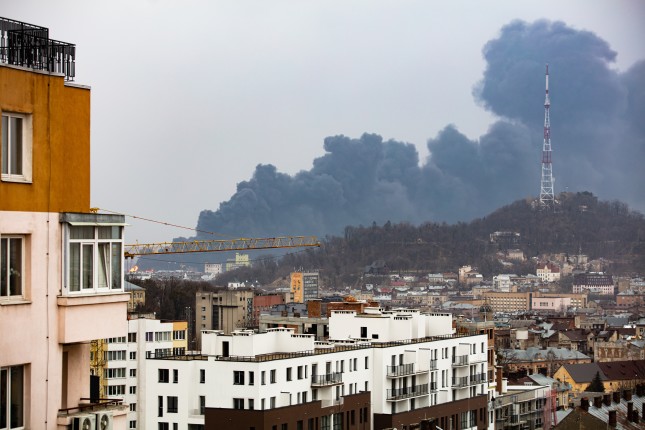-
Maternal Health and The Pandemic: It’s Not Good News
›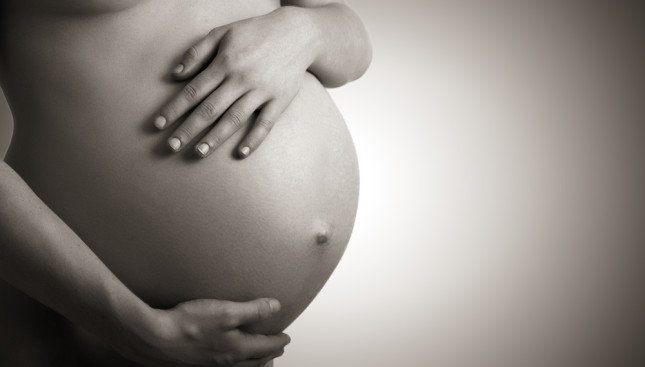
COVID-19 has dealt out a double dose of woe for global maternal health. According to a new report from the Government Accountability Office (GAO), the pandemic saw an increase in maternal deaths and an exacerbation of racial disparities driving this overall morbidity. In addition, childbearing people experienced significant anxiety and depression.
-
Ukraine’s Environment in Time of Conflict: Damage, Data and the Rule of Law
›
When Russia invaded Ukraine on February 24, 2022, it was not only a geopolitical and humanitarian disaster. The conflict has detrimentally impacted the environment.
War and environmental damage are inextricably linked, but the invasion of Ukraine has caused further deterioration in pre-existing environmental issues. “Before 2014, Ukraine was already a country which faced environmental challenges,” observed Ian Anthony, Director of the Stockholm International Peace Research Initiative’s European Security Program (SIPRI) at a December 14 webinar titled Beyond War Ecologies: Green Ways forward for Ukraine. “Russia’s first aggression in 2014 exacerbated problems. The second aggression extended some of the problems to other parts of Ukraine and not just to Donbas.”
-
Water @ Wilson Event | Water, Peace, & Security: New Tools for a New Climate
›Water sustains life on our planet. And access to clean and safe water is foundational to society. So why has it only been in recent years that water has risen to the top of discussions of climate and security? Richard W. Spinrad, the Under Secretary of Commerce for Oceans and Atmosphere and NOAA Administrator, says that one of the biggest reasons is the major impact that climate-related changes in precipitation like droughts and extreme rainfall are having across the globe: “We’re starting to see things like we’ve never seen before. The nature of storms is changing: We saw five feet of rain fall in Hurricane Harvey. Five feet.”
-
Invisible Threads: Addressing Migration Through Investments in Women and Girls
› This week’s episode of the New Security Broadcast explores Invisible Threads: Addressing the Root Causes of Migration from Guatemala by Investing in Women and Girls–a new report from the Population Institute. “We feel like it’s really important to highlight how the lives of women and girls and other marginalized groups are really central to a lot of the issues that are at the root causes of migration from the region,” says Kathleen Mogelgaard, President and CEO of the Population Institute. In this episode, Mogelgaard lays out the report’s findings and recommendations with two fellow contributors: Aracely Martínez Rodas, Director of the Master in Development at the Universidad del Valle de Guatemala, and Dr. J. Joseph Speidel, Professor Emeritus at the University of California, San Francisco School of Medicine.
This week’s episode of the New Security Broadcast explores Invisible Threads: Addressing the Root Causes of Migration from Guatemala by Investing in Women and Girls–a new report from the Population Institute. “We feel like it’s really important to highlight how the lives of women and girls and other marginalized groups are really central to a lot of the issues that are at the root causes of migration from the region,” says Kathleen Mogelgaard, President and CEO of the Population Institute. In this episode, Mogelgaard lays out the report’s findings and recommendations with two fellow contributors: Aracely Martínez Rodas, Director of the Master in Development at the Universidad del Valle de Guatemala, and Dr. J. Joseph Speidel, Professor Emeritus at the University of California, San Francisco School of Medicine. -
Top 10 Posts of September and October 2022
›
In September and October’s top post, Susie Jolly captures how sex education is deeply enmeshed in the power dynamics and institutional norms established by lingering colonialist influences. “We should be outraged, but maybe not surprised at sexuality education’s colonialist connections, writes Jolly. “Sexuality and power are integrally connected at both individual and systems levels.” The author lays out three strategies to address the impact of sex education’s colonialist past and decolonize sex education: resources and reparations, changing sexuality education content, and changing who decides the content.
-
Pandemic Learning: Migrant Care Workers and Their Families Are Essential in a Post-COVID-19 World (New Report)
›
“The COVID-19 pandemic has brought into the open two things that much of the world has always assumed but not fully acknowledged: women do the vast majority of caregiving, and caregiving is grossly undervalued. Caregiving is also the fastest-growing economic sector in the world—projected to add 150 million jobs by 2030. Global societal changes, like low birth rates, demographic aging, and an increase in female labor force participation, are basic drivers of the continued growth of this sector. But because in many cultures care work is considered “instinctive” for women—a type of work not requiring skill—it has remained virtually invisible, unpaid or underpaid and unregulated. It is also often stigmatized, especially when relegated to already marginalized and underrepresented populations.” – Pandemic Learning: Migrant Care Workers and Their Families Are Essential in a Post-COVID-19 World
-
Slow Down? Environmental Regulators Tap the Brakes on China’s High-Speed Rail
›China Environment Forum // Guest Contributor // Vulnerable Deltas // December 15, 2022 // By Xiao MaChina’s high-speed railway (HSR) is the most recent poster child for the country’s rapid development, with more HSR tracks than the rest of the world combined. Since 2004, the Chinese government has invested more than 10 trillion RMB to build a 40,000-kilometer (km) network of trains that zip between stations at speeds reaching 350 km/hr (or 220 miles per hour). Not to be outdone, by 2035 the government aims to expand this train network by 75 percent to help the country reach its transport connectivity and low-carbon transportation goals.
-
Warfare and Global Warming
›
The world has plenty of reasons to avoid conflict already. Yet attendees at the recently-concluded COP27 climate conference in Sharm el-Sheikh, Egypt were presented with another compelling argument: Warfare is bad for global warming. So much so, in fact, that Ukraine’s delegation to the conference organized a special session at the conference of parties on “War Related Emissions,” bringing along a tree trunk bearing scars from Russian shell fragments as tangible evidence.
 A Publication of the Stimson Center.
A Publication of the Stimson Center.

